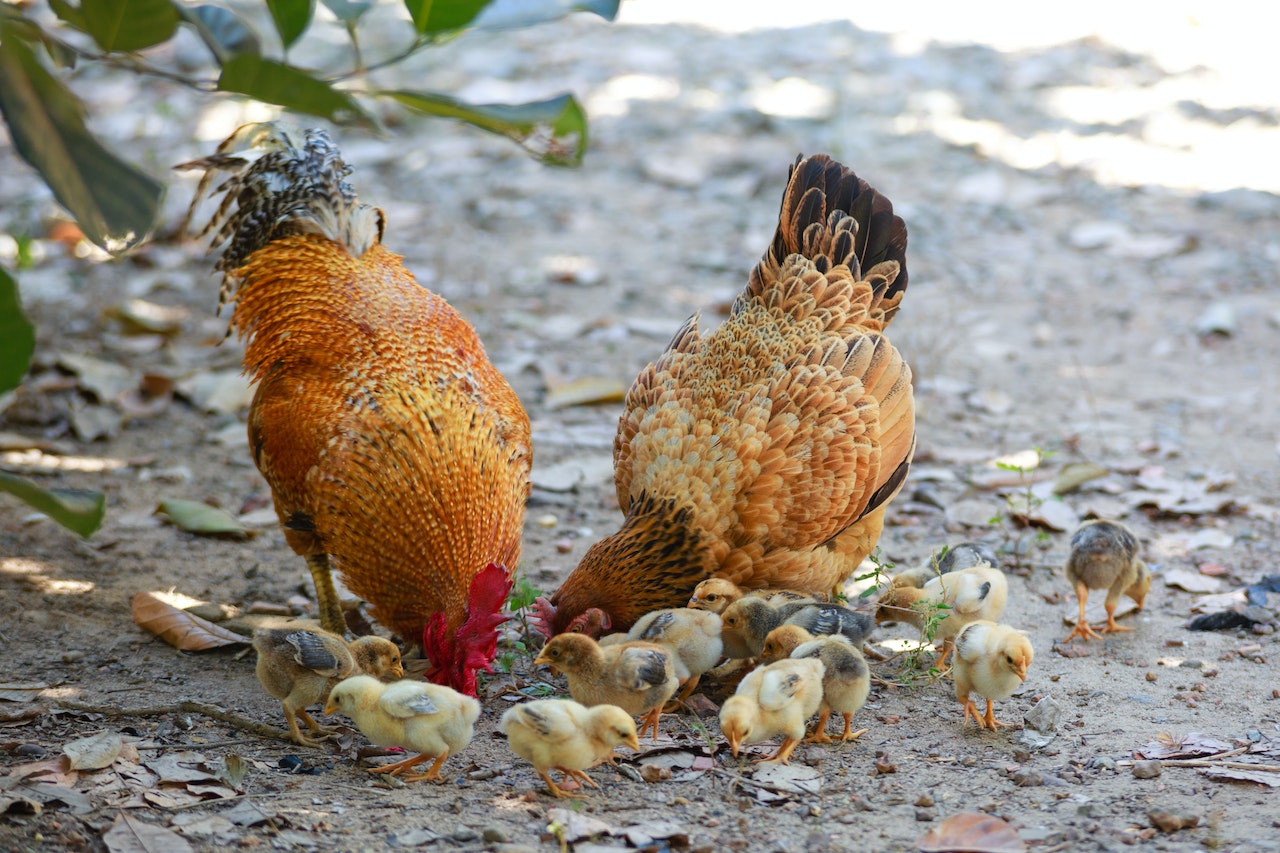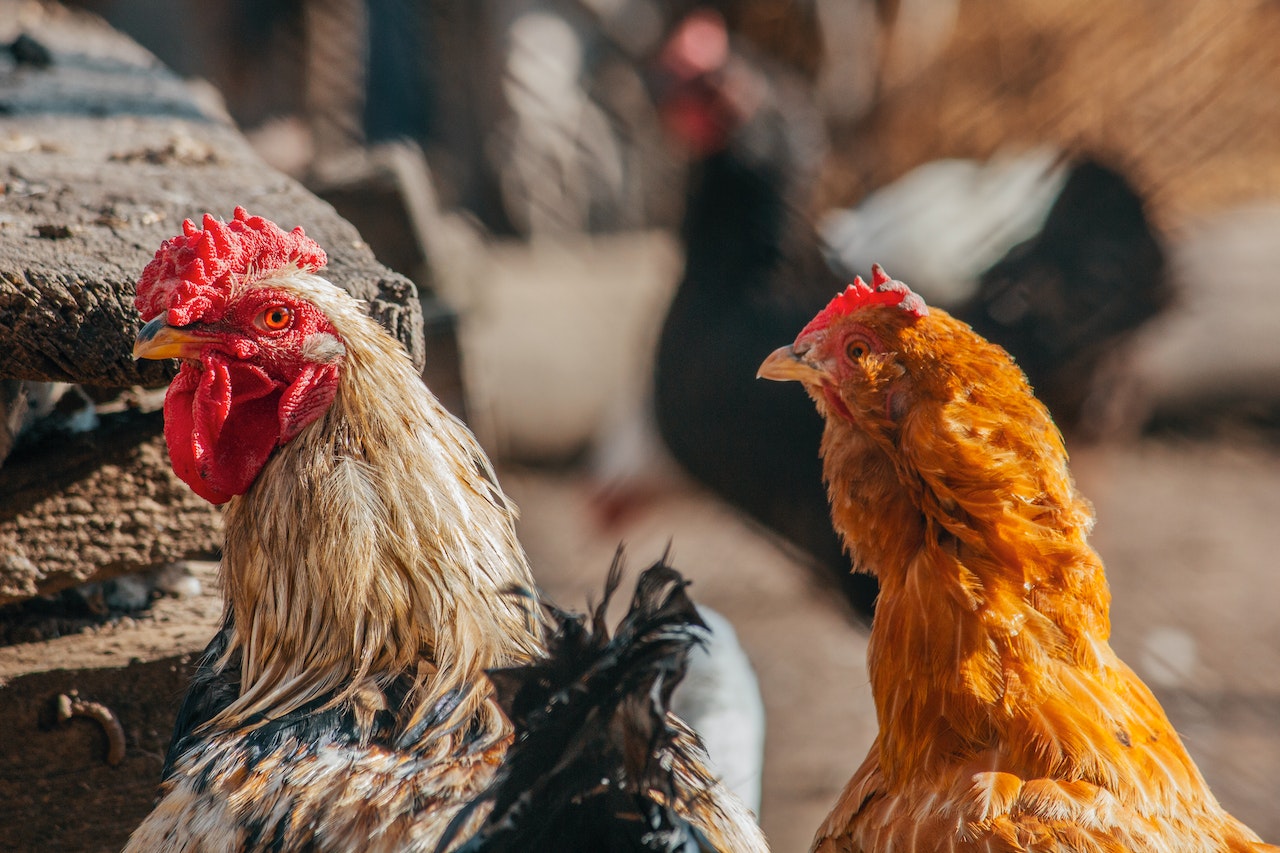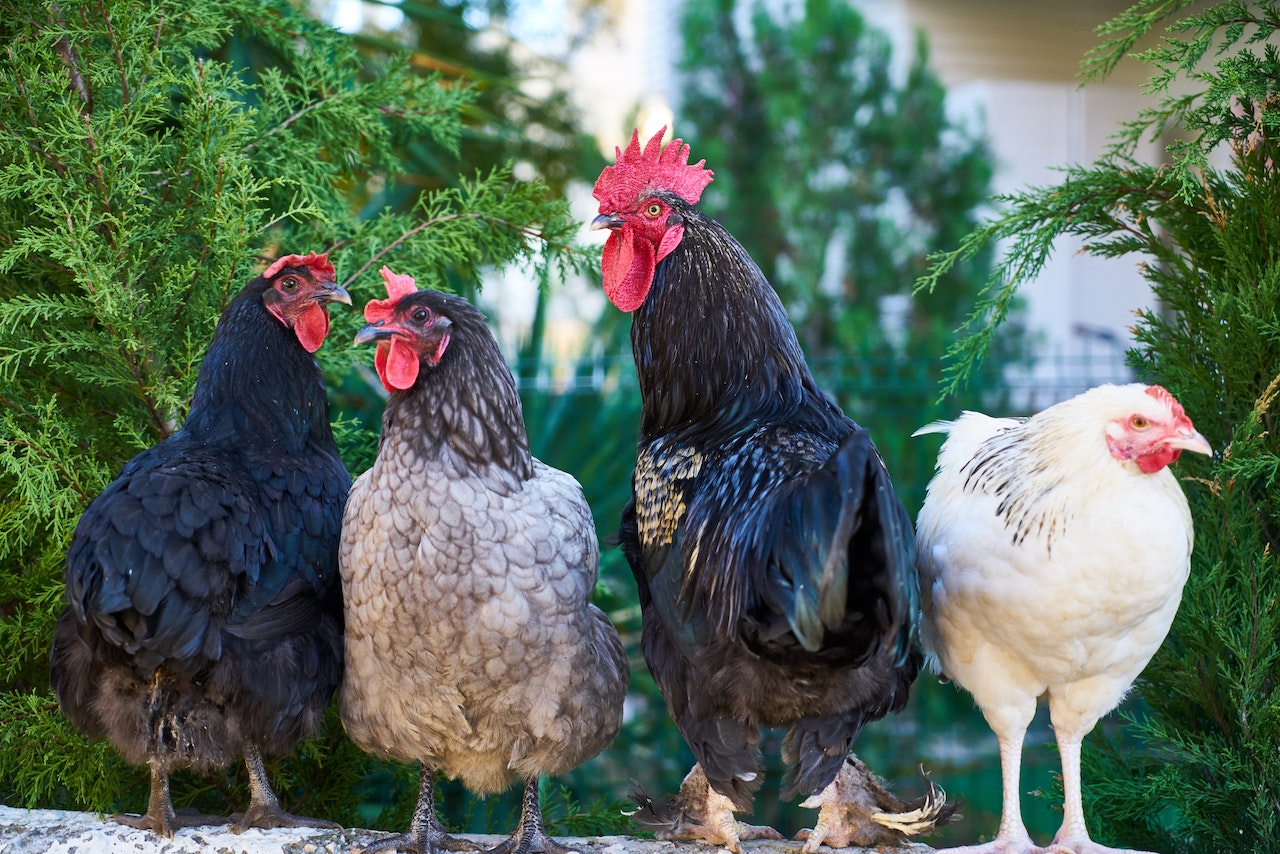
Chickens are omnivorous creatures known for their ability to consume a wide range of foods. While their primary diet consists of grains and insects, many chicken owners wonder if it's safe and beneficial to feed their feathered friends vegetables. In this comprehensive guide, we will explore the topic of feeding vegetables to chickens, covering aspects such as nutritional benefits, suitability for different age groups, serving methods, quantities, potential risks, and reach a conclusion on whether chickens can indeed enjoy a veggie feast.
Can Chickens Eat Vegetables?
Yes, Chickens can eat a variety of vegetables as part of a balanced diet. However, it is important to consider the type of vegetables and their preparation to ensure optimal health and safety for the chickens.
Vegetables offer a host of nutritional benefits for chickens. They provide essential vitamins, minerals, fiber, and antioxidants that contribute to overall health, improved egg quality, and enhanced immune function. We delve into the specific nutrients found in vegetables and their positive impact on chicken health.

Nutritional Benefits of Feeding Chickens Vegetables
Feeding chickens vegetables can offer a range of nutritional benefits that contribute to their overall health and well-being. Here are some key advantages of including vegetables in a chicken's diet:
- Vitamins and Minerals: Vegetables are rich in vitamins and minerals that are essential for chicken health. Different vegetables provide various nutrients. For example, leafy greens like spinach and kale are high in vitamin A, which supports healthy vision and immune function. Carrots are packed with beta-carotene, a precursor to vitamin A, while bell peppers provide vitamin C, which aids in immune function. Other vegetables, such as broccoli, offer a blend of vitamins A, C, and K, as well as minerals like calcium and iron.
- Fiber: Fiber is an important component of a chicken's diet as it promotes proper digestion and helps prevent digestive disorders. Vegetables, particularly those with leafy greens and fibrous stalks, such as celery and broccoli, contain significant amounts of dietary fiber. By incorporating vegetables into their diet, chickens can maintain healthy gut function and reduce the risk of digestive issues like crop impaction.
- Antioxidants: Many vegetables are rich in antioxidants, which protect cells from damage caused by free radicals. Antioxidants, such as beta-carotene, lutein, and zeaxanthin, are found in vegetables like carrots, sweet potatoes, and leafy greens. These compounds play a role in reducing oxidative stress and supporting overall health, including eye health, immune function, and disease prevention.
- Hydration: Some vegetables, like cucumbers and zucchini, have high water content. Feeding these vegetables to chickens can contribute to their hydration, especially during hot weather or in dry environments. Proper hydration is essential for maintaining optimal bodily functions and overall health in chickens.
Can Baby Chicks Eat Vegetables?
While adult chickens can handle a diverse diet, it is crucial to be cautious when introducing vegetables to baby chicks. We discuss the appropriate time to introduce vegetables to chicks and the gradual process of transitioning their diet to include veggies.
Can Chickens Eat the Seeds of Vegetables?
Seeds are a common component of many vegetables, and chicken owners often wonder if they are safe for consumption. We explore the potential risks and benefits of feeding vegetable seeds to chickens, highlighting specific precautions to take.
Can Chickens Eat the Peel or Rind of Vegetables?
Some vegetable peels or rinds are safe and nutritious for chickens, while others may pose risks. We examine different vegetables and their peels, discussing which ones are suitable for chicken consumption and which should be avoided.
How to Serve Vegetables to Chickens
Proper preparation and serving methods are essential when offering vegetables to chickens. We provide guidance on washing, cutting, and serving vegetables in a manner that is safe and appealing to chickens.
Serving vegetables to chickens requires proper preparation and presentation to ensure their safety, palatability, and optimal nutritional intake. Here are some guidelines on how to serve vegetables to your flock:
- Washing: Before serving vegetables, it is crucial to wash them thoroughly to remove any dirt, pesticides, or other contaminants. Rinse the vegetables under clean running water and gently scrub if necessary. This step helps eliminate potential health hazards and ensures the vegetables are safe for consumption.
- Cutting or Chopping: To make vegetables more manageable for chickens, consider cutting or chopping them into bite-sized pieces. This makes it easier for the birds to peck and consume the vegetables. For larger or tougher vegetables, such as carrots or squash, it may be beneficial to shred or grate them to prevent choking hazards.
- Fresh or Cooked: Vegetables can be served to chickens either fresh or cooked, depending on their preferences and the specific vegetables in question. Some chickens enjoy the crunchiness and texture of raw vegetables, while others may prefer cooked vegetables, which can be softer and easier to digest. Experiment with both options and observe how your flock responds.
How Much Vegetables Can Chickens Consume?
While vegetables offer numerous benefits, it is important to provide them in moderation. We outline recommended quantities based on factors such as chicken size, age, and overall diet to prevent nutritional imbalances or digestive issues.
Risks of Feeding Vegetables to Chickens
Although vegetables are generally safe for chickens, there are potential risks to be aware of. We discuss factors such as toxic vegetables, pesticide residues, and gastrointestinal issues that can arise from improper feeding practices.
Feeding vegetables to chickens can provide numerous health benefits, but it's important to be aware of potential risks and take necessary precautions. Here are some risks to consider when incorporating vegetables into a chicken's diet:
- Toxic Vegetables: Not all vegetables are safe for chickens to consume. Certain vegetables contain compounds that can be toxic to chickens. For example, members of the nightshade family, such as tomatoes, potatoes, and eggplants, contain solanine, a toxin that can be harmful in large quantities. Rhubarb leaves and onion skins also contain substances that are toxic to chickens. It is essential to research and ensure that the vegetables being fed to chickens are safe for consumption.
- Pesticide Residues: If vegetables have been treated with pesticides or herbicides, there is a risk of residual chemicals being present. Chickens may ingest these residues when consuming the vegetables, which can have adverse effects on their health. To minimize this risk, it is recommended to feed chickens organic or pesticide-free vegetables or thoroughly wash and peel conventionally grown vegetables before offering them to the birds.
- Gastrointestinal Issues: Introducing vegetables into a chicken's diet too abruptly or in excessive quantities can lead to digestive issues. Chickens have delicate digestive systems, and sudden dietary changes can cause gastrointestinal upset, such as diarrhea or crop impaction. It is important to introduce vegetables gradually, starting with small amounts and gradually increasing the quantity over time, allowing their digestive systems to adjust.
- Nutritional Imbalances: While vegetables offer various nutrients, they should not replace the staple diet of grains and proteins that chickens require. Excessive feeding of vegetables without a balanced overall diet can lead to nutritional imbalances. Chickens may not receive adequate amounts of essential nutrients like protein or certain vitamins and minerals if their diet primarily consists of vegetables. Vegetables should be offered as supplements to the base diet rather than as the sole source of nutrition.
- Choking Hazards: Certain vegetables, particularly those with tough or fibrous textures, can pose a choking hazard to chickens. For instance, long strands of celery or large chunks of raw carrots may be difficult for chickens to swallow properly. To minimize the risk of choking, vegetables should be chopped or shredded into smaller, manageable pieces before being offered to chickens.
Conclusion
Chickens can indeed enjoy vegetables as part of their diet. With the right selection, preparation, and serving methods, vegetables provide valuable nutritional benefits to chickens of all ages. However, it is crucial to exercise caution, be aware of potential risks, and ensure a balanced diet that incorporates a variety of food sources. By striking a balance and following best practices, chicken owners can provide their feathered companions with a wholesome and diverse diet that contributes to their overall health and well-being.



